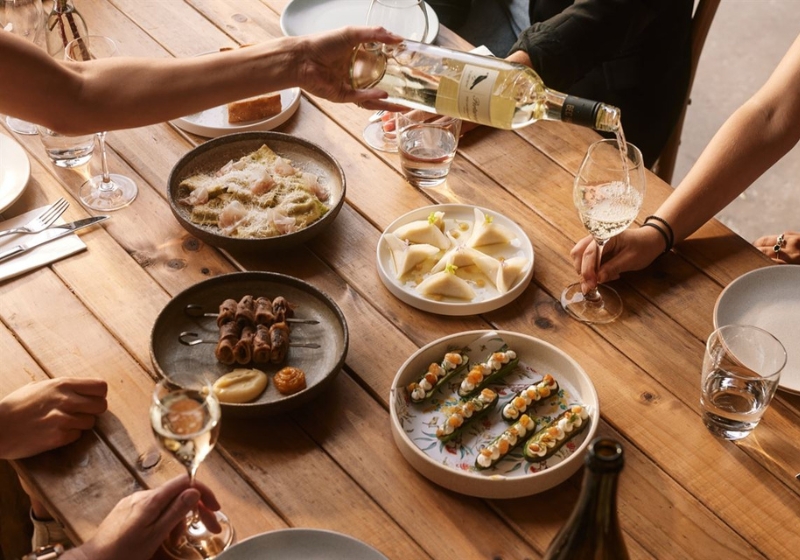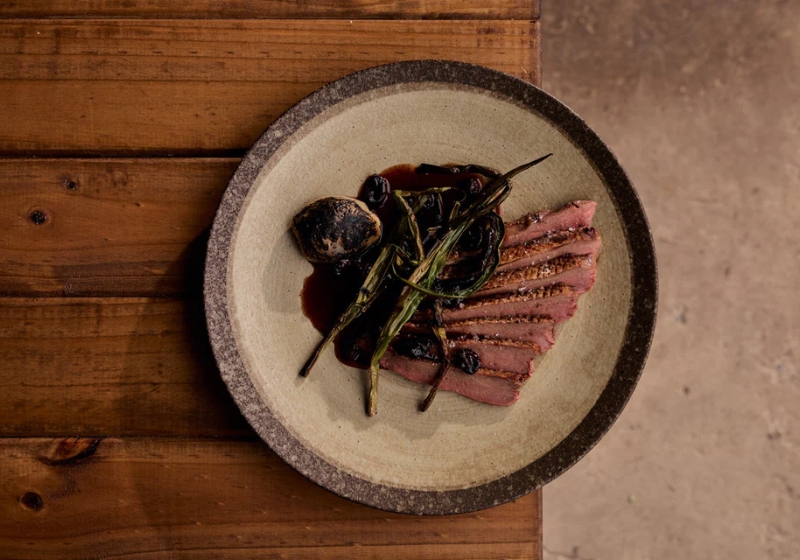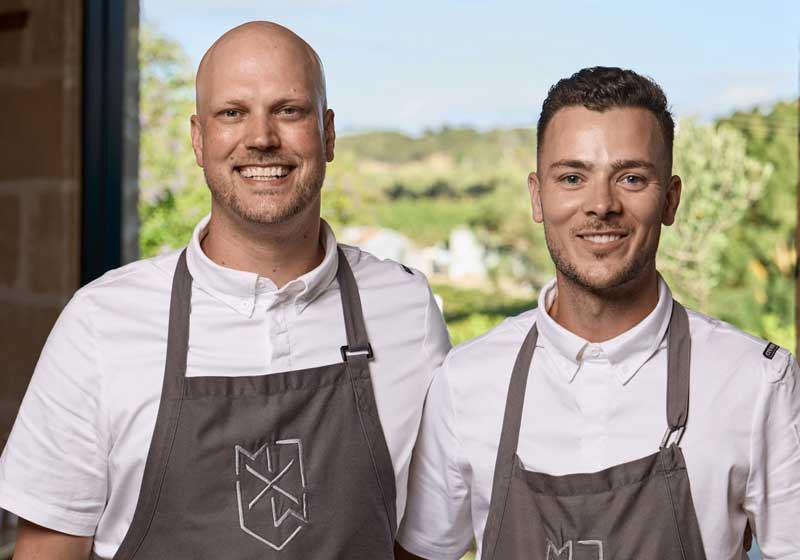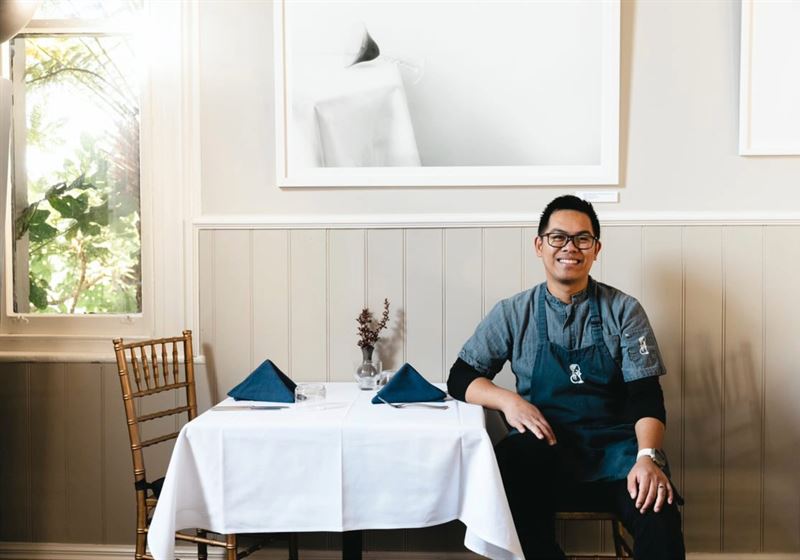For Chef Connor Bishop, sustainability isn’t just a trend—it’s the foundation of his entire approach to food. As the Head Chef at The Kitchen at Bec Hardy (15), he’s leading the charge in seasonal cooking, ethical sourcing and zero-waste kitchen practices, proving that fine dining and environmental responsibility can go hand in hand.
Under his guidance, the restaurant has achieved a 15 score in the prestigious Chef Hat Awards, a testament to the team’s commitment to both flavour and sustainability. We sat down with Chef Connor to dive into the philosophy that drives his kitchen, from responsible sourcing to the future of sustainable dining.

For Connor, sustainability starts long before an ingredient hits the plate. Menus are built around seasonality, using only what’s at its peak to ensure the freshest flavours and minimise waste.
"We work closely with producers who share our commitment to ethical and sustainable farming," he explains. "That means supporting responsible seafood practices, embracing whole-animal butchery and getting creative with repurposing ingredients.”
Beyond the kitchen, sustainability runs through the DNA of Bec Hardy Wines. The business is Sustainable Winegrowing Australia Certified, meaning every aspect—from soil health to water conservation—is managed with environmental responsibility in mind. Even the estate itself, Tipsy Hill, contributes to the mission, growing a bounty of ingredients including figs, cumquats, quince, mulberries, apples and a variety of herbs.
"By using estate-grown produce, we cut down on food miles while ensuring the best possible quality," says Chef Connor.
In an industry where food waste is one of the biggest challenges, Chef Connor takes an intentional approach to reducing it.
"Our seasonal menus are designed for efficiency—every ingredient is cross-utilised," he says.

Vegetable trimmings become the base for house-made stocks or are fermented for future use. Pasta, condiments and preserves are made in-house, allowing for better portion control and less packaging waste. Even the kitchen’s tools have been rethought, with biodegradable piping bags, baking paper and nitrile gloves replacing single-use plastics.
"It’s all about making conscious choices. Small changes—like composting organic scraps—add up to a huge impact," he explains.
For Connor, great food starts with great ingredients—and that means working with producers who align with his ethical vision.
One standout is Feather and Peck eggs, a farm known for its commitment to animal welfare and sustainability. Their traceable, ethically sourced eggs feature prominently on the menu, ensuring that every dish reflects the restaurant’s values.
Sustainability also extends to seafood. The restaurant’s signature yellowtail kingfish dish is sourced from responsible fisheries and paired with native finger lime, blending sustainability with a uniquely Australian flavour profile.
And of course, there’s Tipsy Hill Estate’s homegrown produce, which finds its way into dishes, further reducing transport emissions while enhancing freshness.

"We’re not just sourcing the best ingredients—we’re sourcing them the right way," says Chef Connor. "That’s what makes the difference.”
For the Bec Hardy team sustainability isn’t just about what happens in the kitchen—it’s about shaping a new mindset.
"Our team understands why these choices matter, so they can share that knowledge with our guests," he explains.
Through carefully curated menus, diners experience sustainability firsthand, from the ingredients on the plate to the stories behind them.
"When people understand where their food comes from, they appreciate it more," he says. "Sustainability isn’t just good for the planet—it makes for better dining, too.”
With so much already achieved, what’s next for Chef Connor and the team at Bec Hardy Wines?
"We’re always pushing to do more," he says.
The next frontier includes:
- Expanding fermentation and preservation techniques, extending the life of seasonal ingredients.
- Further reducing single-use plastics across the kitchen.
- Enhancing biodiversity at Tipsy Hill Estate, ensuring long-term sustainability for estate-grown produce.
"We don’t just want to meet sustainability standards—we want to set them," says Chef Connor.

With their recent Chef Hat Awards recognition, it’s clear they’re making an impact.
"Receiving this recognition is a huge honour," says Chef Connor. "It validates everything we stand for—sustainability, quality and a deep respect for the food we serve.”
Under Chef Connor’s leadership, The Kitchen at Bec Hardy is proving that fine dining can be both world-class and environmentally responsible. With every dish, they’re not just feeding diners—they’re shaping the future of Australian cuisine.
Bec Hardy Wines isn’t just a place to eat; it’s a blueprint for sustainable dining. Thoughtful, responsible and delicious—this is what sustainability on a plate looks like.








